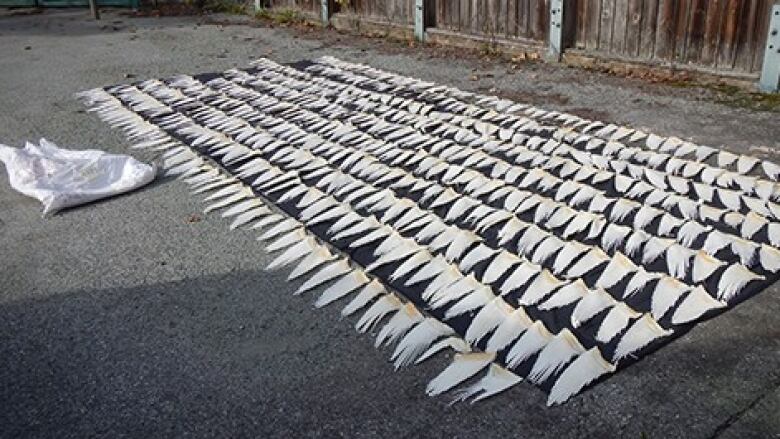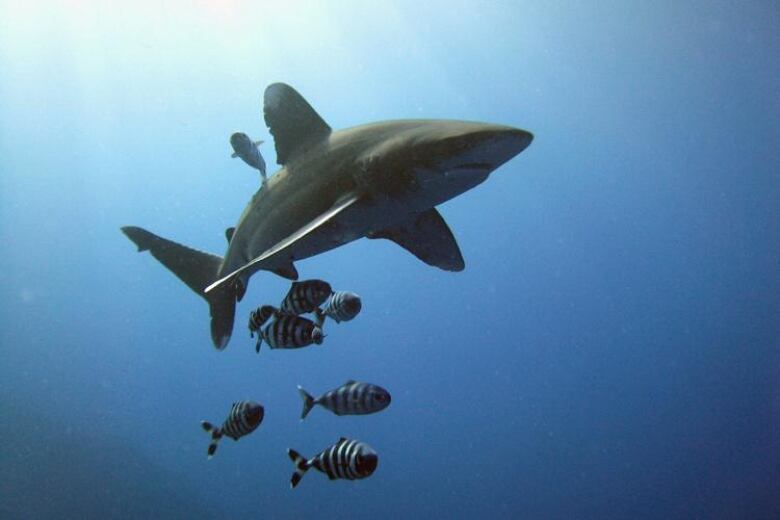Vancouver herbal medicine company fined $75K for illegally importing shark fins
Hang Hing Herbal Medicine declared 22 bags of processed shark fins as fish bone in 2017

A Vancouver-based herbal medicine company has been fined $75,000 for importing fins from a protected species of shark without a permit.
Hang Hing Herbal Medicine pleadedguilty in Vancouver Provincial Court Monday tothe offence, which dates back to September 2017.
According to Environment Canada, the company imported a shipment containing 20,196 processed shark fins weighing 550 kilograms. The 22 bags of finswere declared as fish bone.
"Wildlife enforcement officers inspected the shipment and concluded that the products, declared as fish bone, were in fact shark fins," the federal agency said in a news release.
"DNA testing was used to determine that the shipment contained two species of shark."
Oceanic whitetip sharks listed as threatened
The charges relate only to the importation of 12,984 fins of carcharhinus longimanus, or oceanic whitetip sharks, which were listed as part of theConvention on International Trade in Endangered Species of Wild Fauna and Flora at the time of the offence.
Investigators also identified fins from carcharhinus falciformis, known as the silky shark, which wasn't listed as prohibited under the same treaty until October 2017 a month after the shipment arrived.

According to the Department of Fisheries and Oceans, the oceanic whitetip shark is found in theAtlantic, Pacific and Indian Oceans. The animals can grow up to four metres in length and rarely encounter humans.
The U.S. National Oceanic and Atmospheric Administration listed the species as threatened in 2018.
"The main threat to oceanic whitetip sharks is bycatch in commercial fisheries combined with demand for its fins," the agency's website says.
"They are frequently caught in pelagic longline, purse seine, and gillnet fisheries worldwide and their fins are highly valued in the international trade for shark products."
The animal's fins are used for shark fin soup.
The $75,000 fine will go to the federal government's Environmental Damages Fund. The court also ordered that the entire shipment of processed finsbe forfeited to the Crown.
The company's name will be added to the Environmental Offenders Registry.












_(720p).jpg)


 OFFICIAL HD MUSIC VIDEO.jpg)
.jpg)



























































































